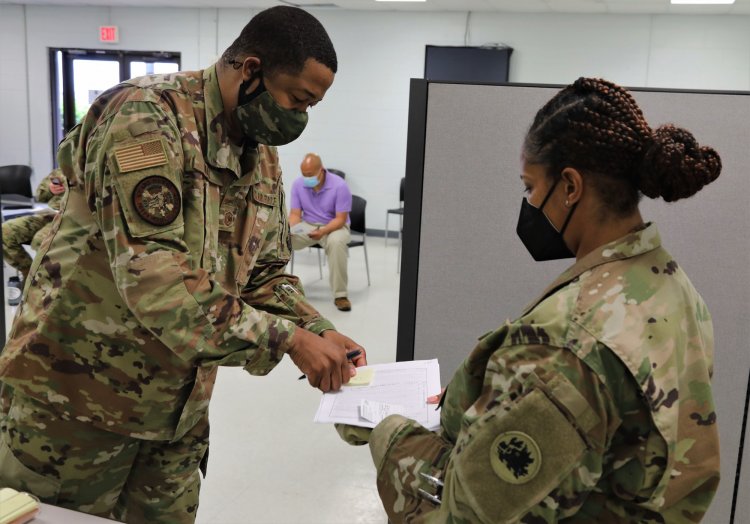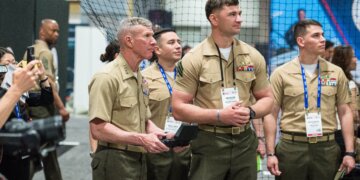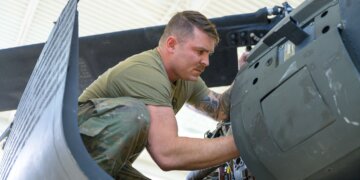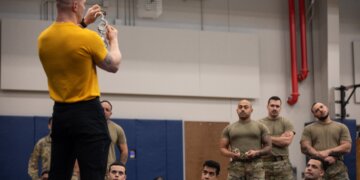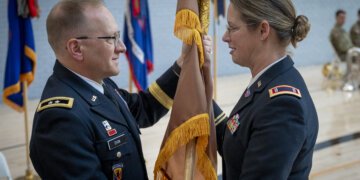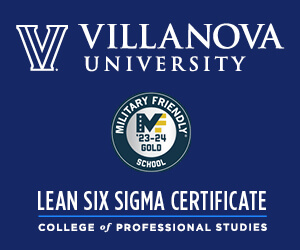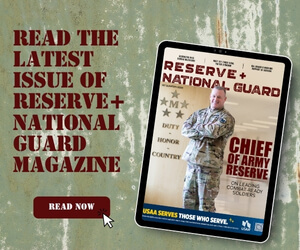To effectively defend the United States, Secretary of Defense Lloyd Austin announced earlier this year that COVID-19 vaccines will be required for all service members.
“We need a healthy and ready force,” Austin said in an Aug. 24 memorandum. “After careful consultation with medical experts and military leadership, and with the support of the President, I have determined that mandatory vaccination against coronavirus disease 2019 (COVID-19) is necessary to protect the Force and defend the American people.”
In the Air Force, 62% of Air National Guard and Reserve are fully vaccinated. Remaining members have until Dec. 2 to be fully inoculated.
Mass distribution sites will be available at their units and medical, chaplain and legal representatives are on-site to answer questions. Administrative and medical exemptions are provided, according to Ann Stefanek, chief of media operations for the Air Force.
Commanders have wide latitude to use the full range of quality force management tools as part of the vaccination process.
Those who have any further hesitancy must consult with their servicing staff judge advocate and will be guided on vaccination noncompliance prior to taking administrative action, said Rose Riley, Air Force deputy chief of media operations.
The Army also is onboard with vaccinating all members.
“This is quite literally a matter of life and death for our soldiers, their families and the communities in which we live,” said Lt. Gen. R. Scott Dingle, U.S. Army Surgeon General. “Case counts and deaths continue to be concerning as the delta variant spreads, which makes protecting the force through mandatory vaccination a health and readiness priority for the total Army.”
Reserve and National Guard units must be fully vaccinated by June 30, 2022, while active duty units have until Dec. 15. However, soldiers can request an exemption if they have a legitimate medical, religious or administrative reason. No actions will be undertaken until the exemption is fully processed.
Otherwise, members who refuse will first receive counsel from their chain of command and medical providers. Continued noncompliance could result in suspension and relief. Prior to any action, each soldier would be notified of the suspension and potential relief from their duties.
The next step would require the member undergoing further counseling and the opportunity to be vaccinated before becoming subject to removal from their position.
In the Navy, 80% of active-duty sailors are fully vaccinated against COVID-19, and 75% overall are fully vaccinated.
Navy reservists have until Dec. 28 to be fully vaccinated, compared to active duty, which must complete vaccination by Nov. 28. They can opt for vaccines that the Food and Drug Administration has officially approved, or those still under emergency-use authorization.
Any service members who also are participants in COVID-19 vaccine trials are exempt in order to not interfere with trial results.
Those in the Navy who decline to be vaccinated can face “punitive or adverse administrative action, or both,” according the Navy. The Chief of Naval Operations could remove an individual’s qualifications for advancement, promotions or reenlistment, among other actions.
Read comments


